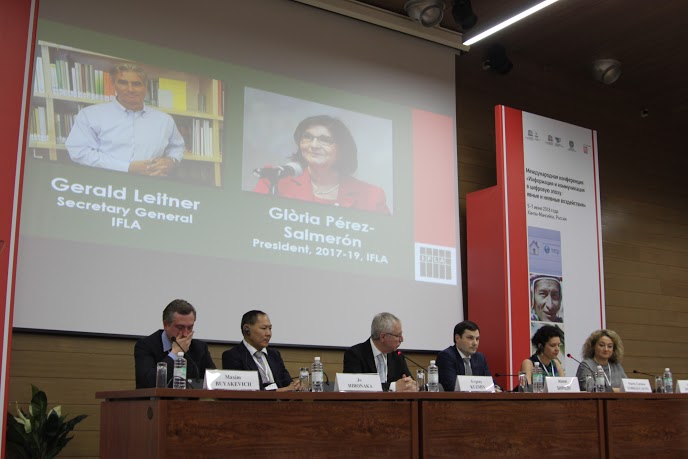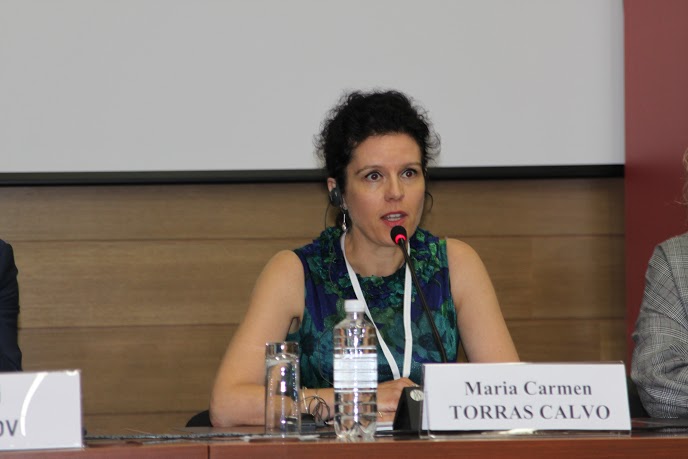Getting to Grips with Information in a Digital Age: IFLA Joins Reflections at UNESCO Conference
13 June 2018
The first UNESCO-IFAP conference on ‘Tangible and Intangible Impacts of Information and Communications in the Digital Age’ on 3-8 June 2018 brought together representatives of government, academia and libraries to discuss the way digital technologies are changing how we learn, share and communicate. Speaking on behalf of IFLA President Glòria Pérez-Salmeron and Secretary General Gerald Leitner, Maria-Carme Torres Calvo offered words of welcome.
 It is becoming more and more common to hear criticism of the Internet, and the type of society and economy that it has brought into existence. Governments, businesses, and many civil society actors are calling for action, often in immediate reaction to the latest scare or scandal.
It is becoming more and more common to hear criticism of the Internet, and the type of society and economy that it has brought into existence. Governments, businesses, and many civil society actors are calling for action, often in immediate reaction to the latest scare or scandal.
However, to realise and safeguard the benefits the digital age has brought, and find real solutions to those problems that do exist, deeper reflection is necessary. This was the objective of the UNESCO Information for All Programme (IFAP) conference, which brought officials, experts, activists and librarians together to build a shared understanding of the issues.
A Unique Contribution
The programme offered rich opportunities to highlight the contribution that libraries and their experience can make to the debate. Maria-Carme Torres Calvo, in delivering opening words on behalf of IFLA President Glòria Pérez-Salmeron and Secretary-General Gerald Leitner, underlined this unique perspective.
Libraries could provide ‘social’ Internet access, allowing people to cooperate in making the most of access to information. They are public-focused, often with a mission to reach out to the marginalised.
They are long-time experts in finding, evaluating and applying information. And they offer a positive answer to many of the concerns we face today about the volume and veracity of information, by helping individuals to take more critical attitudes and realise where to take care.

Media and Information Literacy in a Digital Age
Media and Information Literacy was also high on the agenda, with a strong awareness both of the importance of developing skills, but also of the need to change the way this is taught. Libraries are first-hand witnesses of evolving information flows, and can contribute to this work.
IFLA is already closely involved in UNESCO's Global Alliance of Partnerships for Media and Information Literacy, and looks forward to further helping to shape the agenda. Thanks not only to the expertise of librarians, but also the vital role played by libraries in life-long learning and with vulnerable groups, there is much to offer.
You can download the programme of the event here, and see IFLA's comments in the opening session. Read more about IFLA’s work on libraries and the information society here, and find out about how you can get involved in UNESCO work on media and information literacy in our guide.